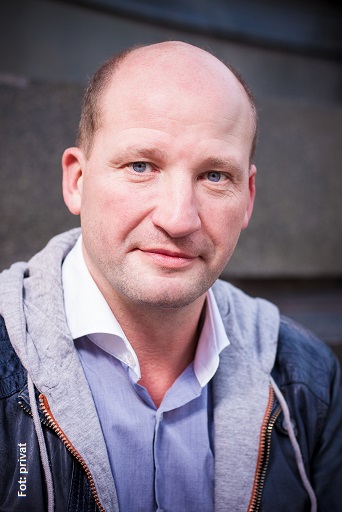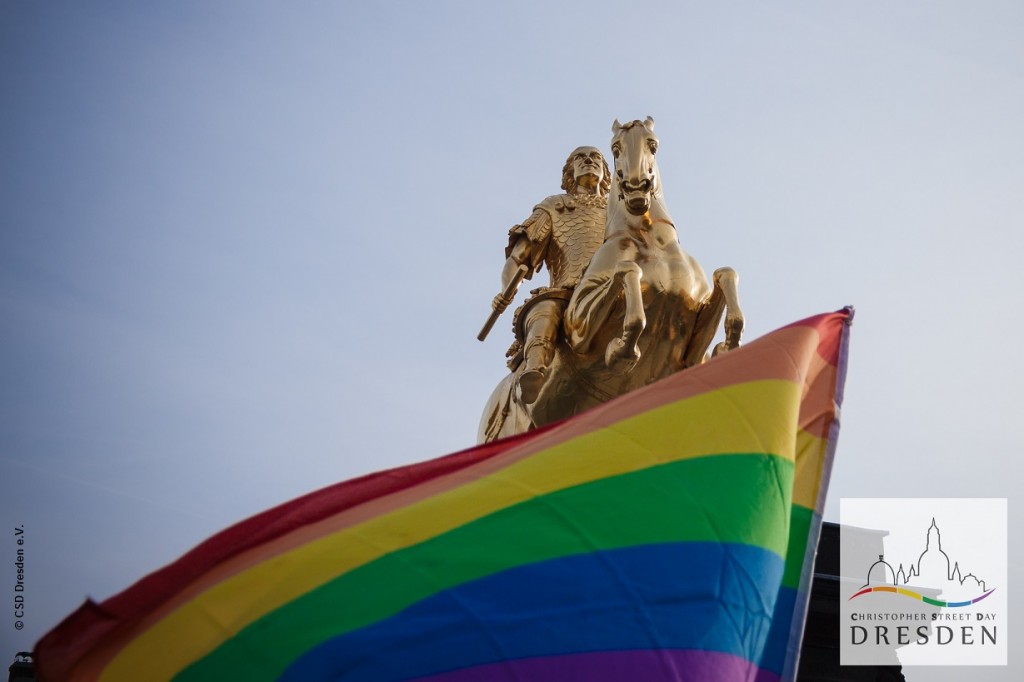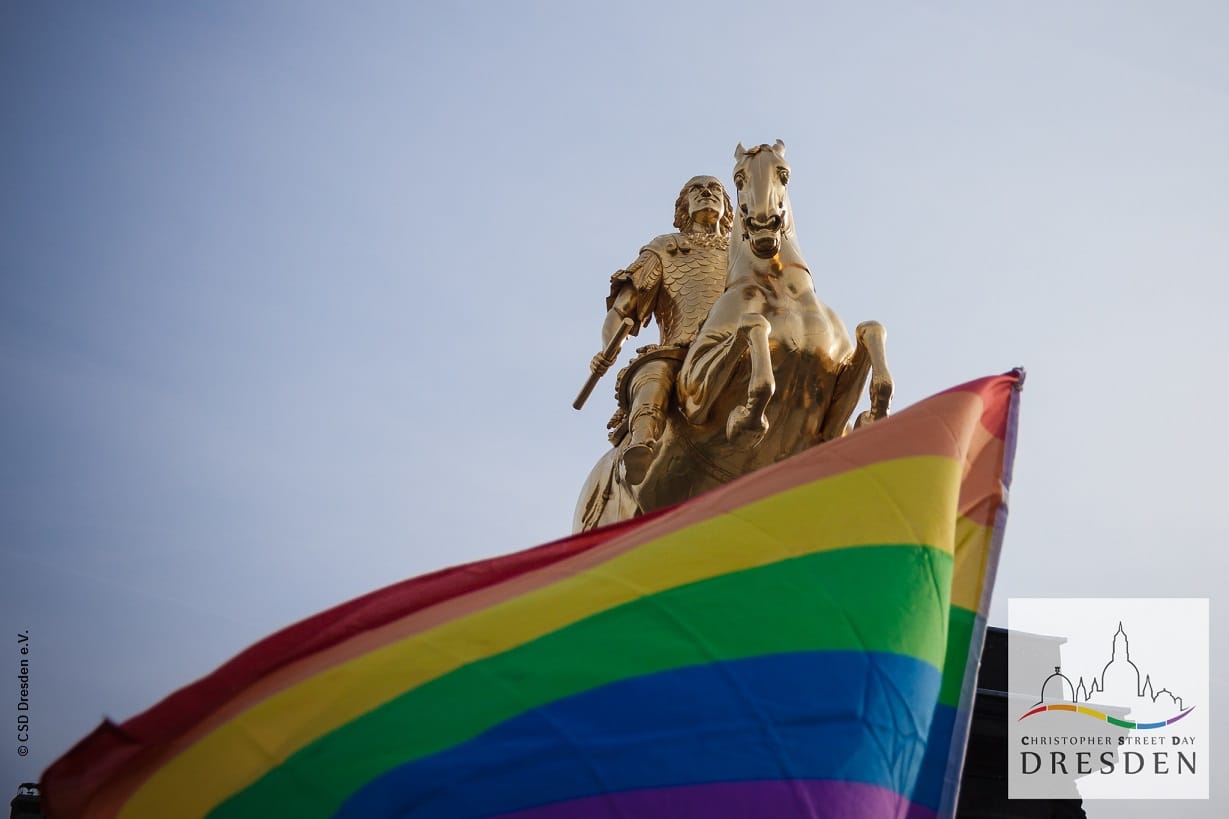Queer refugees are verbally and physically threatened in initial reception centres and hostels. The attackers often come from societies in which homosexuality is more strongly rejected than in Germany, for example from the Balkans or the Arab world. So far, only a few federal states have introduced systematic help. Saxony is regarded as a model and pioneer. The Free State has the only full-time state coordinator in Germany. His name is Ronald Zenker and he has put his job as an entrepreneur on hold to help queer refugees.
Ronald, how does it feel to be the only one of his kind?
I would like to see 15 colleagues! There should be someone in every federal state who organises emergency aid for queer refugees. In Saxony, this worked extremely unbureaucratically. When an emergency call came in from the first reception centre at CSD Dresden last August, all it took was a conversation with the Minister for Integration and Equality, Petra Köpping, to get the project off the ground. In addition, the CDU-led Ministry of the Interior quickly created the legal basis for our work with refugees. Queer activists have been pushing for this for a long time, for example in the green-red state of Baden-Württemberg, to no avail.
What does the Ministry of Integration provide funding for?
As state coordinator, I have a full-time position and since January I have a colleague who will work 30 hours. We have fully equipped rooms in the centre of Dresden. They serve as an office for the volunteers and me and as a contact point for our protégés. For example, the refugees can use computers that boot up in different languages. They also gather in the coordination centre for lessons: six hours of full German, from Monday to Friday.
You mentioned an emergency call. Can you please explain that?
CSD Dresden e.V., of which I am a member of the board, received a call at 10.35 pm on 9 August 2015. Four young Syrians had been spat at and kicked in the initial reception centre after coming out of the closet. It was clear to us that we would get them out immediately and that we needed a plan for future cases.

What does this plan look like?
Initially, we housed queer refugees privately, two of them in Minister Köpping's guest house. Then the cities of Dresden, Leipzig and Chemnitz allocated us flats. Our protégés live there in shared flats. In Dresden, for example, we have eleven flats that are occupied by around 40 people. All the flats are close to the university, where Dresden is particularly mixed. We should be under no illusions: we cannot accommodate queer refugees in neighbourhoods where a comparatively large number of people with xenophobic, homophobic and transphobic views live, regardless of their origin.
Normally, the authorities assign refugees to specific accommodation and they have to stay there until their asylum application has been decided.
Saxony makes an exception for queer refugees. CSD Dresden is allowed to take gays, lesbians and trans*people out of any accommodation in the state and bring them to one of the three major cities mentioned.
How do you find out about queer refugees?
Some homosexuals are forcibly outed in their accommodation because they are caught using Grindr, for example. This usually happens at the weekend, which for me or another helper means starting the car and travelling to Klingenberg, Kamenz or wherever. Other refugees talk about their sexual orientation shortly after entering the country; after all, it can be a veritable reason for asylum. In this case, the authorities don't even send the refugees to the provinces, but straight to us.
Refugees who come out are taken out of the initial reception centre as a preventative measure and put in a better position than others?
Most other refugees also want to move to big cities. This is as understandable as it is impossible. But it would be against all reason to let our five trans* people, for example, live in a refugee hostel. You just have to imagine how a queer refugee feels in a home somewhere in the countryside, let's say in Schleswig-Holstein. That's why I'm promoting our model in discussions with political decision-makers throughout Germany. CSD Dresden e.V. has also founded a nationwide network, Rainbow Refugees.
Where do queer refugees come from?
In addition to Syrians, we have also accommodated Venezuelans and Georgians in our shared flats. Homosexuality is not only frowned upon in some Islamic regions of the world. Even in Christian countries, queer people live in constant fear of violence and marginalisation.
How many people are helping the refugees and what are their tasks?
The hard core consists of around 15 volunteers who dedicate five to ten hours a week. They accompany the refugees to the authorities, for example. We can also rely on a good 15 other volunteers who give up to five hours a week. They act as housing mentors. This means that they regularly visit one of our shared flats and cook together with the refugees or help with paperwork, for example.
Are you still looking for supporters?
Always! Anyone interested can simply get in touch with us. Nobody has to worry about committing to anything. We work flexibly according to the availability of our volunteers. Sometimes it helps to cover for me for an hour or two at the coordination centre if I have appointments outside the office.
Further information and contact details for anyone who would like to help can be found at CSD Dresden e.V. or on their Facebook fan page.











